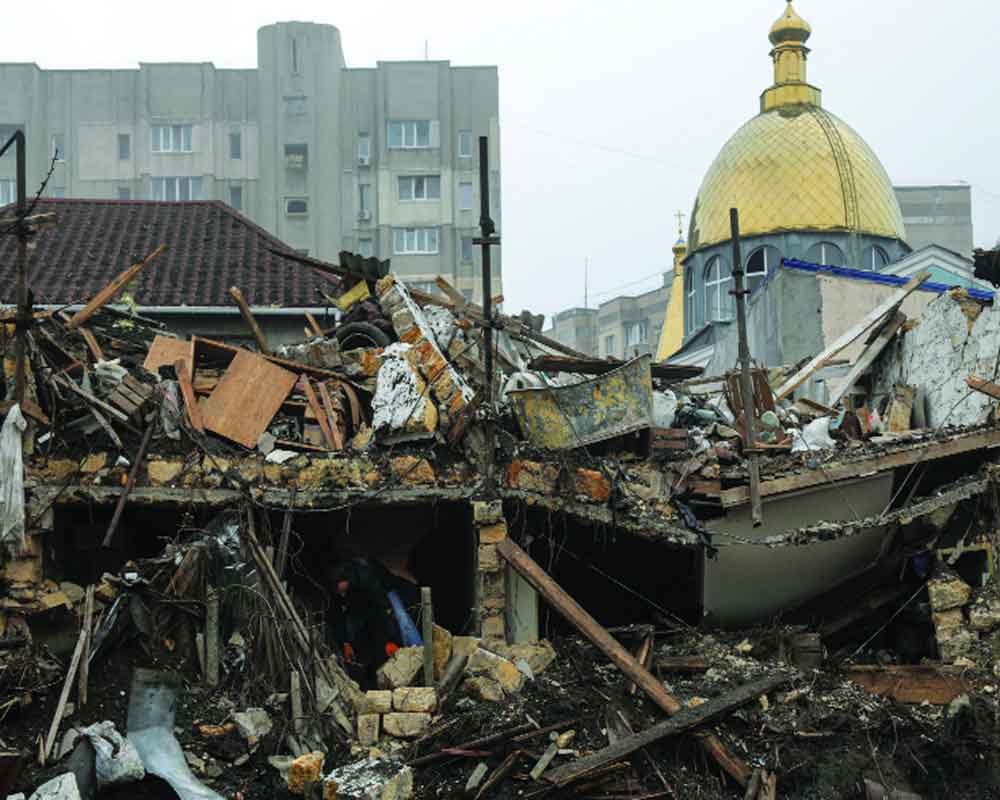In a world fraught with geopolitical tensions and environmental concerns, the imperative for collaborative diplomacy has never been more pressing
In today’s global arena, myriad challenges ranging from geopolitical conflicts like the Russia-Ukraine tensions to the pervasive threat of transnational terrorism, and the assertive global ambitions of China, underscore the complex landscape we navigate. Amidst these pressing concerns, environmental issues have ascended to the zenith of international politics. Notably, the recent ruling by the Administrative Court in France, imposing a substantial fine of nearly 19.78 million Euros for failing to curb pollution, underscores the burgeoning emphasis on climate change policies. Conversely, nations such as Germany and the UK have intensified their efforts to combat environmental degradation, recognizing its profound ramifications for public health and global economies. Entities like the European Environmental Agency and the World Health Organization persistently advocate for urgent action on climate change in the post-Kyoto Protocol era.
Challenges persist unabated, including burgeoning populations, dependence on fossil fuels, and the phased decommissioning of nuclear power plants across Europe. Nonetheless, effective measures like stringent production regulations and robust waste management systems have exhibited promise in alleviating environmental hazards. Across Asia, countries grapple with issues like soil contamination and industrial pollution, necessitating concerted endeavors to tackle water and air quality concerns.
Despite these challenges, recent economic negotiations have catalyzed cooperation among nations, fostering trade, economic partnerships, and mechanisms for investment protection. Endeavors to bolster collaboration across regions like Asia, the Pacific, and Africa underscore a commitment to addressing shared challenges collectively. Leaders such as Prime Minister Narendra Modi and EU officials Ursula Von Der Leyen and Charles Michel merit recognition for their visionary stewardship in nurturing diplomatic ties and fortifying global security.
A pivotal issue on the agenda revolves around the relaxation of intellectual property rights concerning vaccines to expedite global vaccination campaigns. A burgeoning consensus on curtailing climate change and advancing renewable energy sources reflects a collective dedication to sustainable development. Landmark agreements like the 2019 Japan-EU deal exemplify significant strides toward this common objective.
Relations between India and the EU have flourished, marked by substantial increases in trade volumes, particularly with nations like Germany, Italy, and the Netherlands.
The EU’s Civil Protection System’s support during the COVID-19 pandemic has further cemented ties and paved the way for enhanced cooperation. Diplomatic gestures from leaders in Belgium, Spain, and France underscore the depth of relations between India and the EU.
While trade and investment have served as bridges to overcome differences, challenges persist, including issues related to market access and foreign direct investment. Collaborative efforts in areas such as nuclear energy and sustainable development signal alignment on environmental concerns. Sustained negotiations could yield mechanisms to counter terrorism, cyber threats, and bolster maritime security.
In times of crisis, a collaborative approach rooted in equity and solidarity emerges as indispensable, underscoring the significance of international cooperation. Investing in education, healthcare, and technology stands as imperative for global development and resilience. Nations must adeptly navigate evolving geopolitical dynamics, prioritising mutual prosperity and stability through robust multilateralism.
Raymond Aron’s astute observations on international relations resonate strongly, illuminating the shifting contours of global politics. A strategic vision founded on cooperation and resilience is indispensable to navigate the intricacies of an increasingly complex world. Embracing innovation and integration empowers nations to confront challenges collectively.
It is imperative to acknowledge the interconnectedness of nations and the shared responsibility to address pressing issues. The urgency of climate change demands bold and concerted action on a global scale. It transcends political borders, socioeconomic disparities, and cultural differences, necessitating a united front in combating its deleterious effects. Moreover, the imperative to address environmental concerns extends beyond policy frameworks and governmental initiatives. It requires the active engagement of civil society, businesses, academia, and grassroots movements. Initiatives such as youth-led climate strikes, corporate sustainability pledges, and community-driven conservation projects exemplify the diverse array of efforts needed to tackle environmental challenges comprehensively.
Fostering inclusive and equitable growth is paramount in addressing the root causes of global instability and conflict. Furthermore, the role of technology and innovation cannot be overlooked in shaping the future trajectory of global affairs. Embracing a culture of innovation, entrepreneurship, and knowledge-sharing is essential in harnessing the transformative potential of technology for the collective good. The time for action is now, and the stakes could not be higher.
(The author, a recipient of the Bharat Gaurav award, is a professor and an expert on strategic affairs; views are personal)


























